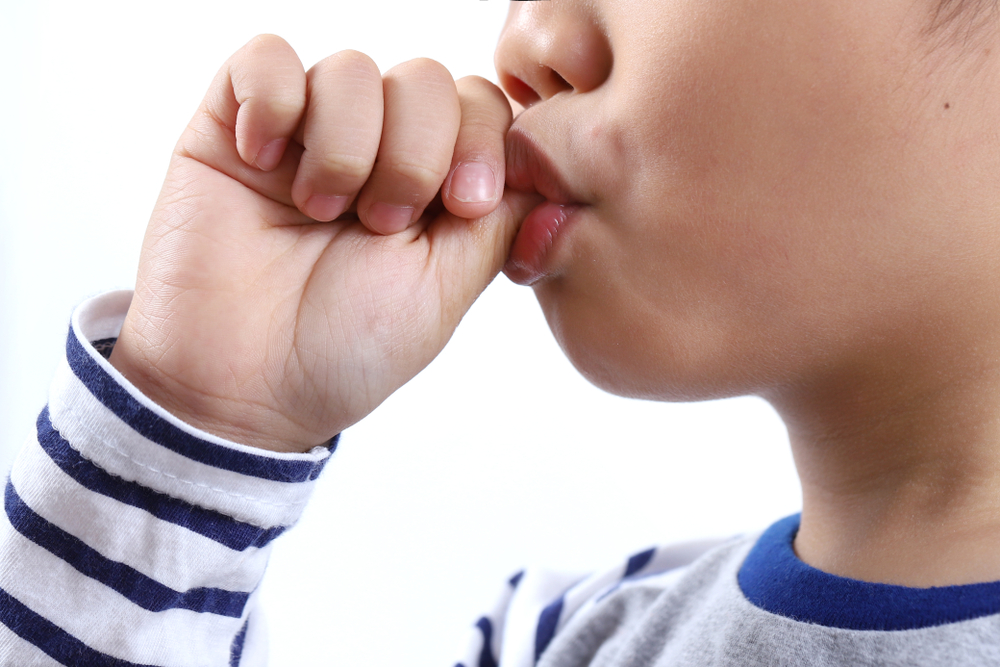Pacifier vs Thumb Sucking: What’s Worse for Your Child’s Dental Health?
As a parent, you know that pacifiers and thumb sucking can be lifesavers during those early months and years—soothing a fussy baby, helping them fall asleep, and providing a sense of security. But as toddlers grow, these habits can cause more harm than comfort, particularly when it comes to long-term dental health.
So when should you intervene, and what kind of dental problems can these habits cause? Let’s break down the science behind pacifier dental problems, the effects of thumb sucking on teeth, and how you can help your child transition to healthier oral habits.

Why Toddlers Suck Their Thumbs or Use Pacifiers
Sucking is a natural reflex for babies. It helps with feeding and offers self-soothing comfort. For many children, this habit fades on its own by age 2 to 4. But if the habit persists beyond that age, especially when adult teeth are about to erupt, it can interfere with healthy mouth development.
When It Becomes a Problem
According to the American Dental Association (ADA), most children who stop sucking their thumbs or using pacifiers by age 3 are unlikely to suffer long-term dental issues. However, persistent and aggressive sucking—especially past age 4—can lead to:
-
Misaligned bites (open bite or overbite)
-
Changes in palate shape (narrowed or high-arched palate)
-
Speech development issues
-
Front teeth pushed outward
These effects are often more pronounced with thumb sucking, as it tends to exert greater pressure and is harder to control compared to pacifiers.
Clinical Insight: A report from the American Academy of Pediatric Dentistry states that prolonged non-nutritive sucking habits (pacifiers and thumbs) can significantly alter maxillary (upper jaw) development, increasing the risk for orthodontic treatment later on.
Pacifier vs. Thumb Sucking: Which Is Worse?
Both thumb sucking and pacifier use can lead to dental issues if prolonged beyond the early years. However, thumb sucking is generally harder to manage because the thumb is always accessible to the child, making it difficult to control or limit the habit. In contrast, pacifiers can be taken away or limited more easily by parents.
According to Boys Town Pediatrics, while both habits have the potential to affect dental development, pacifiers—especially orthodontic pacifiers designed to reduce pressure on gums and developing teeth—may be a safer short-term option. Orthodontic pacifiers are shaped to support natural oral development and reduce the risk of malocclusion or bite issues.
Therefore, for parents looking to manage non-nutritive sucking habits, switching to an orthodontic pacifier can be a helpful intermediate step before completely eliminating the habit. This approach can minimize dental risks while still comforting the child.

What Parents Can Do: When and How to Intervene
The ideal time to begin phasing out these habits is around 18-24 months, with more structured weaning by age 3. Here are a few gentle strategies to help:
-
Positive reinforcement: Use reward charts and praise when your child chooses not to suck their thumb or ask for a pacifier.
-
Gradual reduction: Limit use to specific times (e.g., only at bedtime) and gradually phase out completely.
-
Offer alternatives: Introduce a soft toy or blanket as a comfort object.
-
Talk to your pediatric dentist: They can assess if the habit is affecting oral development and offer custom advice.
In severe or persistent cases, especially for children over age 4, a dentist may recommend a habit-breaking appliance—a custom device fitted in the mouth to deter sucking.
What Happens If It’s Not Addressed?
If not stopped in time, these habits may lead to orthodontic issues that require braces or other corrective treatment in later childhood. Common outcomes include:
-
Open bite: Front teeth don’t meet when the mouth is closed
-
Overjet: Upper front teeth protrude far forward
-
Crossbite or speech delay: From altered palate development
These conditions can affect not just appearance but also chewing, speech clarity, and long-term oral hygiene.
Final Thoughts: Early Action Makes a Difference
Every child is different, and not all thumb or pacifier habits will lead to problems. But being proactive—monitoring how long and how often your child engages in these habits—can make all the difference.
The key is knowing when to step in, offering supportive alternatives, and getting guidance from a dental professional if needed. By taking small steps early, you’re setting your child up for a healthier smile, clearer speech, and stronger bite alignment in the years to come.
Either way, Emergency Dental of Las Vegas is here for you. Schedule an appointment today or check out our blog page for more dental tips!
